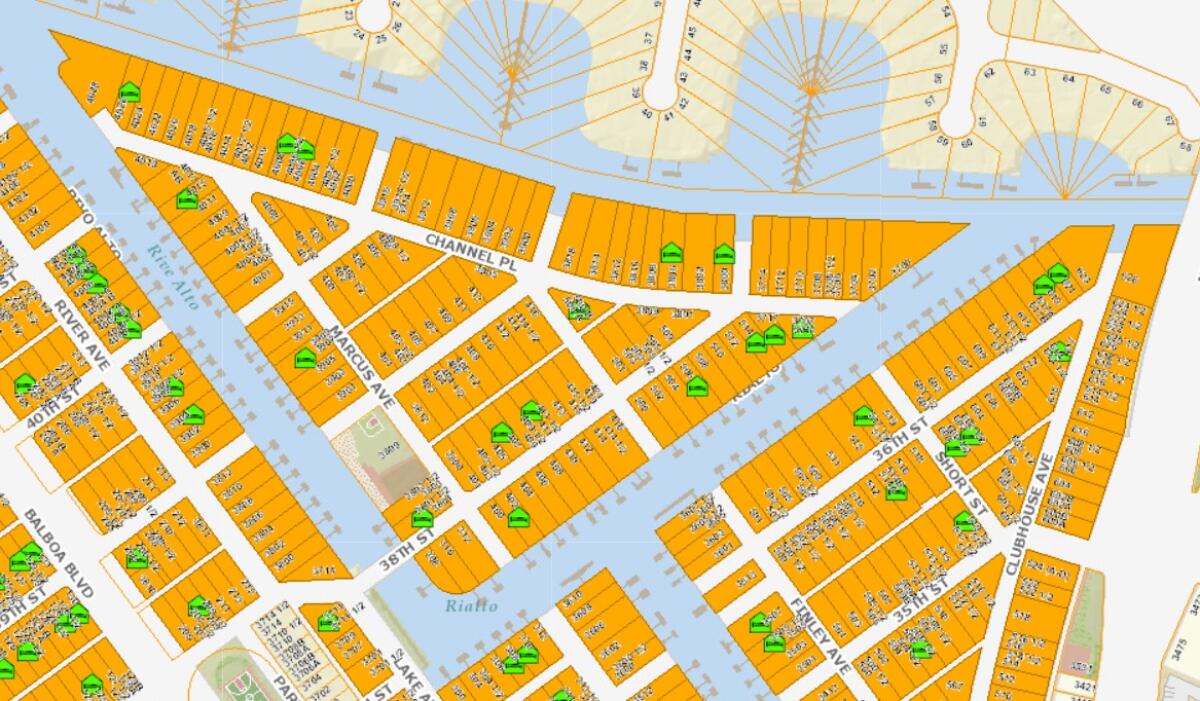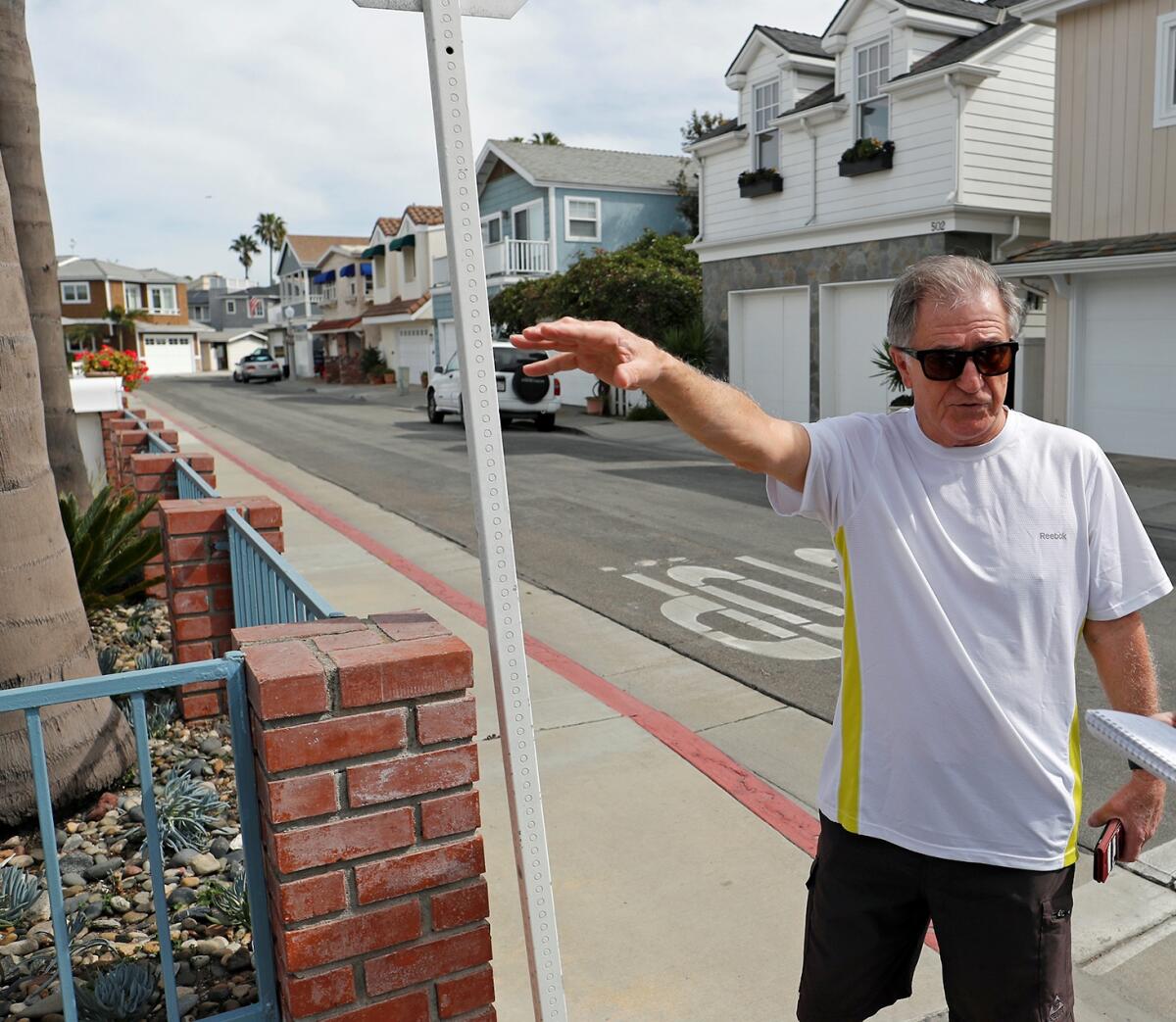Newport Island gets vacation rentals back, if guests commit to 4-night stays

- Share via
Newport Island will continue to have a different set of regulations compared to the rest of the city when it comes to vacation rentals.
The City Council voted Tuesday to lift a pandemic-driven moratorium on short-term lodging on the small residential island, but with the caveat that all vacationers stay for at least four nights.
The current minimum stay elsewhere in Newport, also in response to the coronavirus pandemic, is three nights to reduce visitor churn during the continuing public health crisis.
The council put a six-week moratorium on all 1,500 of the city’s vacation rentals in April, which it mostly lifted last month — except on Newport Island, which had been especially impacted by an influx of vacation rental conversions even before the coronavirus crisis.
The island, tucked into the northwest corner of Newport Harbor, only has about 20 homes permitted for short-term rentals. It has about 110 homes overall, with tight lots, narrow streets and limited curbside parking. The vacation rentals have mostly cropped up over the past two years, and neighbors have been vocal about what they see as a sharp blow to the island’s tranquility.
The council also approved a package of citywide vacation home reforms that it has been discussing for several months. These include higher fines for scofflaws, contracting with a 24-hour answering service to take neighbor complaints, and, pending Planning Commission input, maximum occupancy rules and a requirement that every rental unit have a parking space.
Councilman Jeff Herdman, who helped craft the latest general update, said that by implementing stiffer fines and being more consistent about enforcement, “these units that are having such a negative impact on quality of life are basically going to eliminate themselves.”
Gary Cruz, a second-generation island resident, said the rules need enforcing. He likened the soft touch he said police take on children leaping from the island’s access bridge over Newport Harbor to the enforcement on problem vacationers. This indicates that irritating behavior can slide if nobody catches it, he said.
“If they’re partying and the police come in and say, ‘Don’t party anymore,’ then they come back two hours later and they have to do it again, you’re kind of approving bad behavior,” Cruz said. “That’s what I think we’re trying to stop.”

Megan Cooper, who lives in one half of a Newport Island duplex she owns with a friend, rents out the other unit with the assistance of a professional management firm. She said some vacation home reforms make sense, but she said she struggled with feeling like Newport Island is being unfairly singled out.
Lori Bowman, who rents out an island home that has been in her family for more than 80 years, had a similar stance.
“The reasons given for keeping the ban in effect on the island — parking problems, density of homes, narrow streets, disturbances by short-term renters — are the same problems that all the other areas in Newport Beach have experienced with short-term lodging,” she said.
But resident Thomas Horton said the impacts are worse than on nearby Balboa Peninsula, one of Newport’s historic tourism nodes, because of the island’s unique layout — its triangle shape and single point of ingress.
“If you go there it’s super obvious,” he said.
Joe Bowerbank said there are some good operators — and some who aren’t. He said the island has changed so much in the 10 years he’s rented a home there full-time that he’s now unsure if he wants to buy the property from his landlord.
“I’ve seen vomit, I’ve seen body parts, I’ve seen things I didn’t see when I moved there in 2010,” he said.
Mayor Will O’Neill voted against the Newport Island minimum stay because he doesn’t think Newport Island should be treated differently, or that the mechanism used to carve out that difference — an emergency ordinance pinned to the coronavirus pandemic — was appropriate.
“It’s three nights everywhere else in the city,” he said. “I have no idea why adding a fourth night would somehow fix an emergency situation during a virus.”
All the latest on Orange County from Orange County.
Get our free TimesOC newsletter.
You may occasionally receive promotional content from the Daily Pilot.




